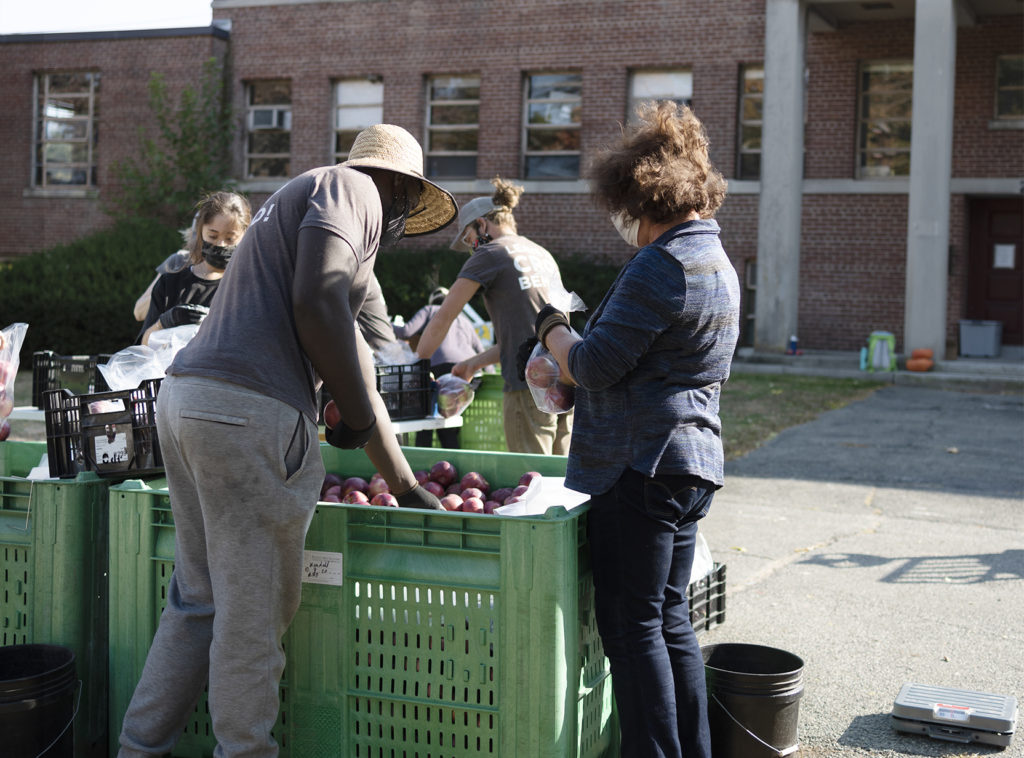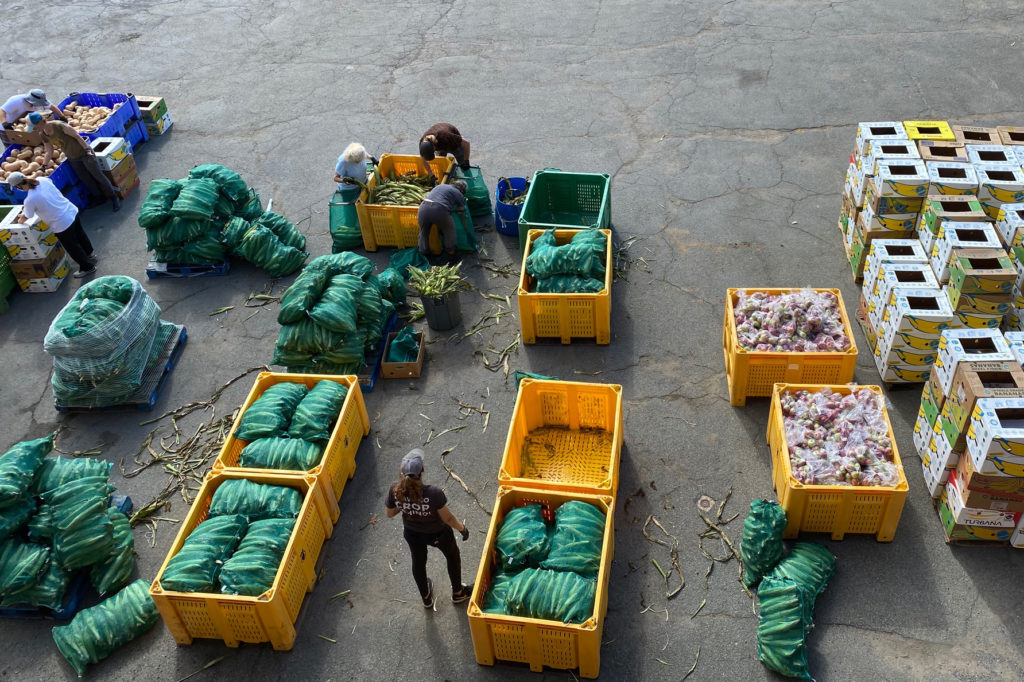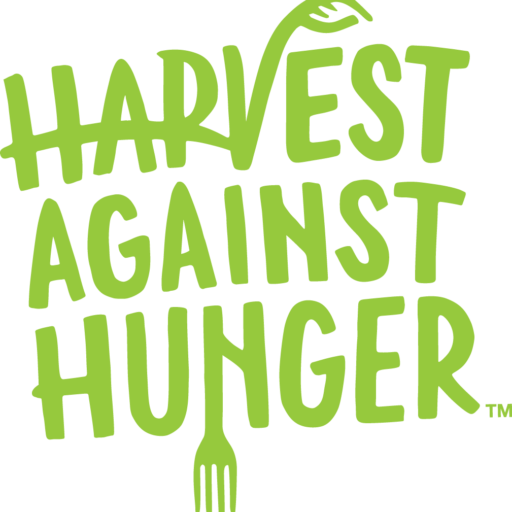How Can We Help?

Repacking Gleaned Crops
‘Repacks’ are an essential step in the produce recovery process. For certain crops, the harvest method, weight, and volume that’s being gleaned mean that crops aren’t packed into boxes in-field but rather are piled in larger harvest bins. As the season goes on, these crops will typically need to be packed into smaller cases for distribution to partner agencies and meal programs.
Crops that get re-packed are most often storage crops, like carrots, potatoes, apples, and winter squash. Large volumes from these harvests will be able to be stored late into the season and packed and distributed on a rolling basis. As a result, repacks can occur well beyond the harvest season and extend into the late winter, making them a great year-round volunteer opportunity.
Because these projects take place at BAG’s headquarters with already-gleaned produce, repacks do not require outside coordination with farmers, but rather depend on what’s needed for distribution orders. Repacks can also happen proactively, to prep boxes for potential orders. Later in the season, BAG will typically have an ample supply of gleaned produce to re-pack, so these projects are a great fallback option in case a potential field glean for a trip falls through.
BAG’s signup process on the volunteer side is the same as for any other volunteer trip. This type of project does demand more set-up of the staff side, however. For most crops, one of the Trip Leaders will need to forklift harvest bins or palettes out of storage and into an open area on the property. Depending on the crop, there may also be a need to be other equipment: cull bins, folding tables for sealing apple bags, a wash station for root vegetables, and rain pants for folks who may be washing.
The check-in and introductory talk for volunteers on BAG’s repacks mirrors what is done during field gleans. Because repacks may have multiple steps and varied tasks, it’s a good strategy to split folks up at the outset into separate stations, so that they can be guided in more detail on their particular task once there. An apple pack, for example, needs folks sorting and bagging loose apples, a group to collect bags, tape them up, and pack them into boxes, and others to seal filled bags. As with any volunteer task, repeating yourself and being ‘overly clear’ about procedures is key to starting the task off on the right foot. Handling produce carefully at this stage is key—BAG staff will say that, if folks around you can hear the produce knocking around as you’re packing, you’re handling it too roughly.

Repacks are an opportunity for secondary quality checks. In any glean, volunteers are trained to harvest at a certain quality standard, but inevitably there will be some lesser-quality crops that make it into storage. Over time, storage crops may also deteriorate on their own, making another evaluation necessary. It’s essential to show volunteers examples of good crops, bad crops, and crops that are ‘on-the-line’ of quality. A good rule of thumb to ensure quality but also keep the harvest moving efficiently is that if you’re taking more than 5 seconds to consider whether a crop is good enough, cull it.
A cull is not necessarily a wasted crop. Apples that are culled by BAG, for example, get sent to a partner cider mill to be processed. Squash will be separated into A and B-grade product, though each will still be distributed (rotting product will be composted).
During the project, staff should float between the groups consistently, making sure quality standards, techniques, and the fill level on bags/boxes are consistent. Repacks are often a particularly collaborative activity for volunteers, and staff should also facilitate conversation between folks as they work. As with all events, pictures are also great—and seeing the scale and ‘action’ involved in such a project can be useful in convincing volunteers that produce processing is just as interesting and impactful as field gleans!


